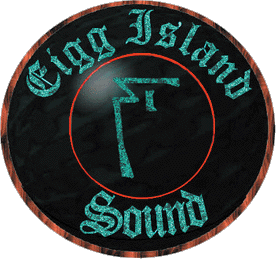
Getting Started with Your Press Kit
Music Services
Graphics Services
CD Mastering
Hosting Services
Artists
Current Shows
Recent Reviews
E-zine & Press
EIS In the News
Articles for the
Indie Artists
(This
article was originally published at Suite
101.com. It appears with their permission as per the
contributing writer agreement)
|
Why a
Press Kit? What goes in a Press Kit?
The Cover Letter should explain why you are sending a CD or cassette to the recipient. It should tell them how you found out about them and what your expectations are: a review, contract, airplay, gig, etc. My advice would be to keep it short. A cover letter should only consist of a couple of paragraphs. Remember to be polite and thank the recipient for their time and consideration. The Band Photo has become a de facto part of most press kits. Many reviewers and agents want to see what you look like so they will often ask for a glossy 8" x 10" picture of you and your band. Invest some money to get a decent professional photograph. Try to avoid obvious cliches such as an overabundance of leather for a rock band and don't go too far down the "artistic" avenue using crazy effects. The idea is show what you look like not that you are visually creative. The Band Bio should be descriptive and, once again, short - no more than a page (preferably less). Describe your music style and any past band accomplishments and outline who the members of the band are and what they contribute. Band bios do not follow a set pattern so spend some time developing yours. Look at sample bios on the Web or in music magazines and notice which bios keep you reading. Another thing to remember is that bios may be used in reviews and articles so you might want to write yours as a narrative for a greater impact - drawing people in with the story of the band. Achievements/Awards/Reviews are not included in all press kits, but they can be effective when used correctly. If you are just starting out, you may not have a lot of reviews or recognition. I would suggest listing your achievements on a separate sheet from the band bio. This sheet can then be modified as you add new reviews. Use your best reviews from the most well known sources and update your sheet as you collect new reviews. Remember to edit your reviews, removing the ones from smaller publications or those that don't say you're the greatest thing since Elvis. Events/Performances should be listed if you play live and are looking for a record deal. Let people know where and when you can be heard. Make sure that the list is kept current. I might bundle this information with the Achievements/Awards/Reviews since it also will be undergoing frequent updates. For CDs/Cassettes, confirm what type of format the person to whom you are submitting the kit prefers and/or will accept. Some Other Tips:
|
Questions or comments? please feel free to contact the writer at: wbeck@eigg.com